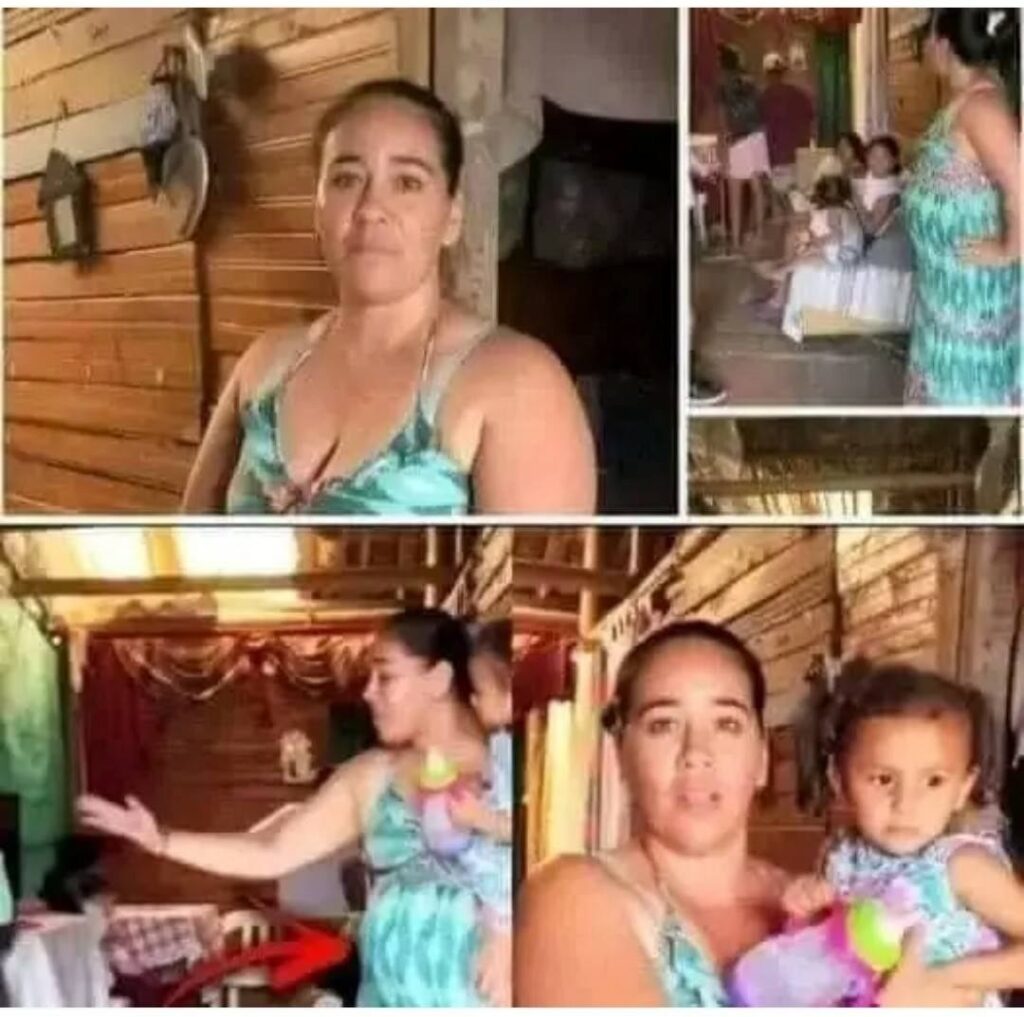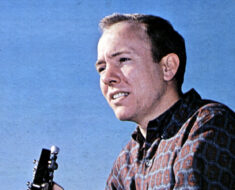At thirty-nine, Martha López has become a name everyone in her small Arizona town knows—though not always for the right reasons. With twenty children from twenty different fathers and another on the way, she’s been the subject of gossip, judgment, and, strangely enough, admiration. People can’t decide whether she’s reckless, extraordinary, or simply someone living life on her own terms.

Martha doesn’t apologize for who she is. “People act like I planned it this way,” she says with a shrug. “But life doesn’t follow plans. It just happens, and you do your best.”
Her story begins far from the small house she now rents on the outskirts of Tucson. She grew up in a poor neighborhood in New Mexico, the oldest of five children raised by a single mother who worked three jobs to keep food on the table. Martha dropped out of high school at sixteen to help take care of her younger siblings. She got her first job cleaning motel rooms, and her first boyfriend soon after. By seventeen, she was pregnant.
That pregnancy became the start of a long, complicated life. The father left before her son was born. “He said he wasn’t ready,” she recalls. “I believed him. I was barely ready myself.”
In the years that followed, relationships came and went—some brief, some lasting long enough to give her hope. Each time, she fell in love quickly, always believing things would be different. “I wanted what my mom never had,” she says. “A family that stayed together. But people change, or they show you who they really are once you’re already pregnant.”
Now, her twenty children range from toddlers to adults in their early twenties. The oldest, Luis, works at a construction company in Phoenix and helps send money home. The youngest, little Camila, just turned two and loves running barefoot around the yard.
Managing that many children sounds impossible, but Martha runs her home with surprising order. The older kids help with chores, cooking, and babysitting. Every morning, she lines them up for school, lunch bags in hand, before she starts her day working part-time at a local diner. She jokes that she’s the CEO of “a very loud company that never closes.”
Her kitchen walls are covered with photos—school pictures, birthdays, graduations, hospital newborn shots. She knows every name, every birth date, every favorite color. “They’re all mine,” she says proudly. “And I love every single one of them the same.”
Still, she knows what people say about her. Some call her irresponsible. Others label her “addicted to motherhood.” She’s heard it all. “They think I’m some wild woman who doesn’t know what birth control is,” she laughs. “Trust me, I know. But I also know that every one of these kids was a choice—even when the circumstances weren’t ideal.”
The truth, she admits, is that her relationships were rarely stable. Some of the fathers disappeared immediately. A few still visit occasionally or send money when they can. Only one, Jorge, the father of her third and fourth children, has stayed in consistent contact over the years. He lives nearby and helps with bills and school events. “He’s a good man,” she says. “We didn’t work as a couple, but he’s a great dad.”
Despite the chaos, none of Martha’s kids have ever gone hungry or without a home. Social services have visited a few times over the years, but always left satisfied that her home, though crowded, is full of care and stability. “We don’t have much,” she says, “but we’ve got love and discipline, and that’s more than a lot of families have.”
The family lives in a sprawling four-bedroom rental on the edge of town, where bunk beds line every wall and the backyard doubles as a playground. Meals are an operation. Dinner often means cooking twenty eggs at once or boiling three pots of pasta simultaneously. “We don’t waste food,” she says. “And if anyone complains, they’re welcome to cook next time.”
Her community has mixed feelings about her, but many locals have quietly stepped in to help. The owner of the diner where she works donates leftover bread and milk. A retired teacher volunteers to tutor some of her kids twice a week. Around Christmas, neighbors drop off bags of clothes and toys. “People talk,” Martha says, “but they also help. And that means everything.”
Now, she’s pregnant again—her twenty-first child, due early next year. The news, as always, spread quickly once she posted a sonogram picture online. The comments section exploded. Some messages were cruel, others oddly supportive. “You’re a legend!” one follower wrote. Another said, “Someone get this woman a reality show.”
Martha doesn’t take offense. “I’ve heard worse,” she says. “I know who I am. I know what I’ve done right and wrong. But I also know that every baby I brought into this world has a purpose.”
She insists that this pregnancy will be her last. “My body’s tired,” she admits. “My heart’s big, but not infinite.” Still, she smiles when she talks about the baby. “It’s a girl. I already know she’ll be strong. All my girls are.”
Her children defend her fiercely. Luis, her oldest, says he’s proud of his mom. “She raised us without help from anyone,” he says. “We didn’t always have new stuff, but we always had her. She taught us to work hard, to look out for each other.”
Her 18-year-old daughter, Sofia, agrees. “People think our family is weird, but we love it,” she says. “There’s always someone to talk to, someone to laugh with. My mom’s the glue. Without her, we’d all fall apart.”
Martha doesn’t sugarcoat how hard it is. There are nights she lies awake worrying about money, health insurance, and the endless stream of needs that come with raising twenty kids. “It’s not easy,” she says. “I cry sometimes. I get scared. But I’ve never once regretted having any of them.”
Financially, things are tight but manageable. She receives some government assistance and works as many shifts as she can. A few of her older kids have jobs and contribute to household expenses. “We make it work,” she says. “We always have.”
Asked if she regrets her choices, she shakes her head. “People think having a big family means you’re careless. But to me, it means you believe in life, in second chances, in love—even when it hurts. I don’t regret loving people. I don’t regret giving life.”
As for the fathers, she stays in contact with a few. “Some are good men who just couldn’t handle this life,” she says. “Some ran away. But I don’t hold grudges. I tell my kids the truth when they’re old enough to understand. Then I tell them they don’t have to repeat my mistakes.”
When asked what she wants for her children, Martha doesn’t hesitate. “I want them to be strong, independent, and kind,” she says. “I want them to have what I didn’t—a chance to build something that lasts.”
Her life may seem unconventional, even chaotic, but Martha sees it differently. “People love to judge what they don’t understand,” she says. “But every morning, I wake up and there’s laughter in this house. There’s breakfast cooking, music playing, kids arguing over the bathroom. That’s life. That’s love. That’s success to me.”
She pauses, rubbing her belly, smiling softly. “This next baby,” she says, “might just be my last chapter. And if it is, I’ll close it knowing I did everything I could. Maybe not perfectly—but with love.”
And in her crowded, noisy home, surrounded by twenty pairs of small hands and twenty different stories, that’s enough.





